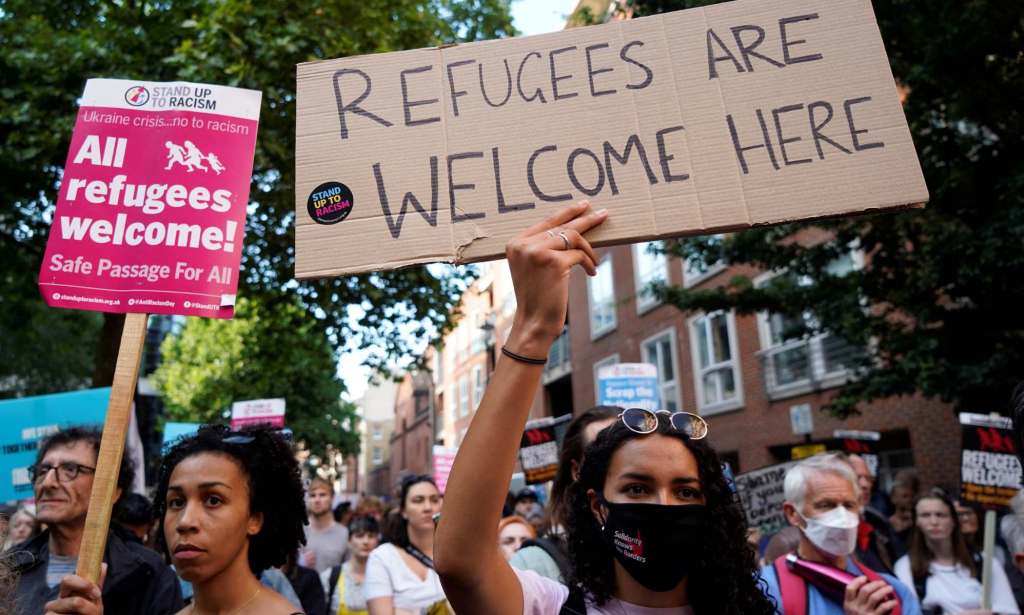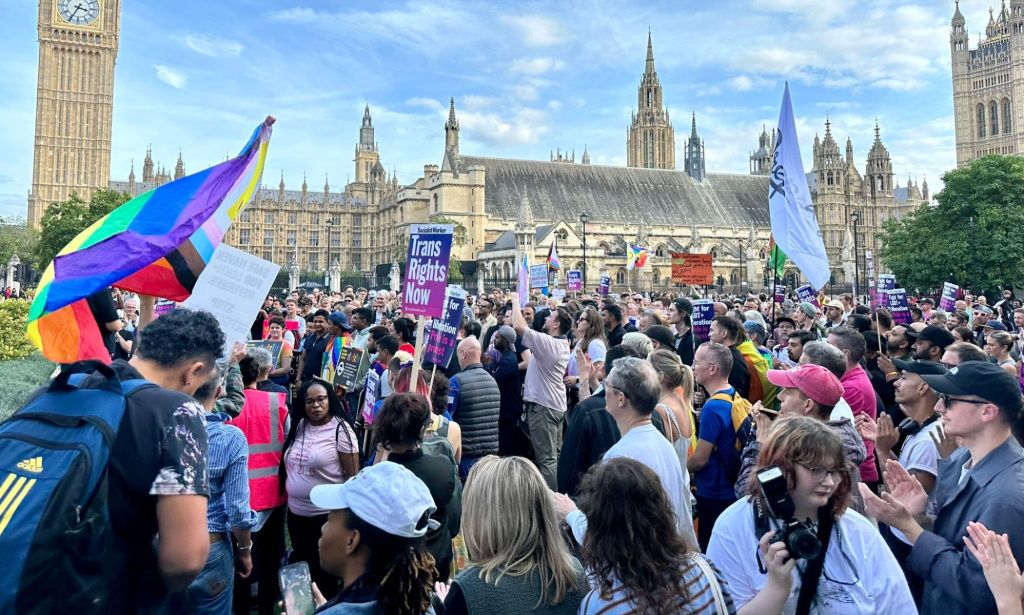Suella Braverman called out in House of Lords over ‘migrants pretend to be gay’ comments

Suella Braverman. (Wiktor Szymanowicz/Future Publishing via Getty Images)
Home Secretary Suella Braverman has been called out in the House of Lords for her “belittling” comments about LGBTQ+ asylum seekers which some peers believe feed “the culture of disbelief in the Home Office”.
On Wednesday afternoon (25 October), Labour peer and veteran LGBTQ+ rights activist Lord Cashman asked Lord Murray of Blidworth, the parliamentary under-secretary of state for migration and borders, what plans the government has to maintain and enhance protections for asylum seekers who face persecution because of their sexuality or gender if returned to their country of origin.
Lord Murray, Conservative peer, replied that the government is “committed” to an asylum system which “continues to protect individuals from persecution”, including LGBTQ+ people.
However, Lord Cashman was not satisfied with that answer, given recent comments by the home secretary which have left him “deeply concerned” and which he described as the “misrepresentation – indeed, the belittling – of the discrimination experienced by women and LGBT+ people”.
And his feelings were echoed later in the debate by Tory peer Lord Duncan of Springbank, who said he is “troubled” by Braverman’s words.
“By creating a space in which it is possible to doubt, and to sow that doubt, you are making it discomforting for those who might seek asylum in this country,” he said.

In September, Braverman gave a controversial speech at the American Enterprise Institute, in Washington DC, where she said being discriminated against for being LGBTQ+ or a woman is not enough of a reason to qualify for asylum in the UK.
The comments were widely condemned as scapegoating LGBTQ+ refugees for political gain and labelled as “deeply disturbing” and pushing a “dangerous rhetoric” by advocacy groups and MPs.
Just hours later, the home secretary doubled down on her comments, claiming, in an interview on ITV’s Peston, that people come to the UK, where they “purport to be homosexual in the effort to get in our system, in the effort to get special treatment”.
Braverman’s comments came after assurances were given that the controversial Illegal Migration Bill would not see LGBTQ+ people removed to their home, or to a third country, if they faced harm because of their gender identity or sexuality.
Lord Cashman went on to argue that Braverman’s comments “undermine the assurances given” by the government.
During the debate, fellow Labour peer Baroness Lister of Burtersett said she welcomed Lord Murray’s remarks, but “feeding the culture of disbelief in the Home Office, as the home secretary did, too often means that women who claim asylum on the basis of sexual orientation have their claims wrongly refused”.
Lord Murray responded: “I do not accept that there is a damaging culture of disbelief. Asylum claims are taken very seriously by the department, as can be seen from the grant rates in asylum cases.
“We also have a very elaborate appeal structure to independent members of the judiciary.”

Following the home secretary’s speech in the US, a protest – dubbed the “Stand Against Suella” march was organised by Pride in London and held in Parliament Square.
“Suella Braverman’s remarks impinge on fundamental LGBTQ+ rights and dignity,” a spokesperson for Pride in London told PinkNews. “We cannot stay silent when a senior government official promotes such harmful views.”
In addition, 246 human rights groups signed an open letter to prime minister Rishi Sunak, demanding that the UK government respect the lives of women and LGBTQ+ people.
Groups such as Amnesty, Oxfam, Refugee Council and Rainbow Migration put their organisation’s names to the letter, which reads: “We note that your government’s own statistics suggest that only two per cent of all asylum claims made in the UK in 2022 included sexual orientation as a reason for seeking protection.
“We regret that the home secretary intentionally singled out this small minority of people for reasons that have nothing to do with genuine concern or respect for international law, refugees, or their protection.
“We need compassion and support from our political leaders, and a clear affirmation that they will abide by international law and respect the lives of all who face persecution and are entitled to asylum.”

